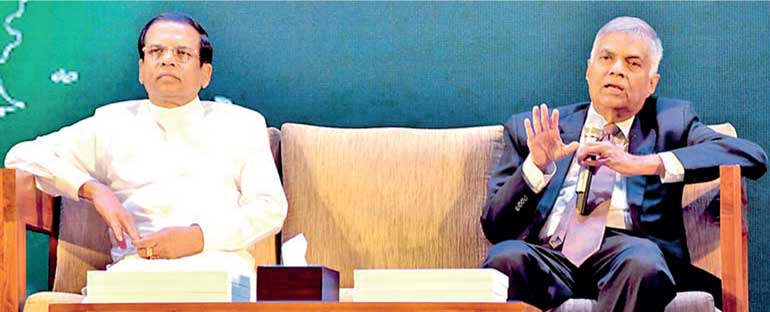Saturday Feb 14, 2026
Saturday Feb 14, 2026
Wednesday, 20 September 2017 00:00 - - {{hitsCtrl.values.hits}}
 Recently, our Government unveiled a forward plan titled: ‘V2025: A Country Enriched’. It spells out the Government’s economic vision for many relevant areas, including development plans for our human resource. The plan looks comprehensive on many fronts and the writer assumes that the Government possesses the right strategies and the right people, for a successful implementation of the same.
Recently, our Government unveiled a forward plan titled: ‘V2025: A Country Enriched’. It spells out the Government’s economic vision for many relevant areas, including development plans for our human resource. The plan looks comprehensive on many fronts and the writer assumes that the Government possesses the right strategies and the right people, for a successful implementation of the same.
However, the writer wishes to express his thoughts and experience on two of the items mentioned in this vision document (see page 26).
1. “We will encourage the private sector to conduct skill development programmes to improve labour  productivity. Government vocational training institutes will align their curricula with National Vocational Qualifications (NVQ). Skill development will begin to target older workers.”
productivity. Government vocational training institutes will align their curricula with National Vocational Qualifications (NVQ). Skill development will begin to target older workers.”
No doubt, the skills development plans for the workforce is a must. Also, the skills requirement is changing fast in today’s context. So, a continuous development is required for all more than before. But, will the skills development alone answer all our workforce/productivity challenges?
The writer is of the opinion that the main productivity issue is; lack of motivation and the lukewarm attitude many people show towards the work. Not the lack of skills per se!
To be precise, most of the Sri Lankan workers (80%) are just interested only in one side of the equation, i.e. what they could receive from the employment – not about the contribution they are supposed to make in return. In Sri Lanka, at blue collar worker interviews, most of the interviewees just ask only two questions; (1) How much will you pay me? (2) How many holidays will I have? They hardly ever inquire about the work or how they could make a positive contribution or difference in the offered position (one of the salient differences compared with the developed world!). Many of our people do not recognise the fact that employment should also be a two-way process as are many other things in life.
Therefore, alongside the skills development plans spelt out, we must have a programme to change the said common lacklustre mind-set and motivate the workforce for better outcomes. Without this, skills can do only very little to enhance the country’s productivity! In other words, we must work on the hearts of the people to prepare them for productive work while we do the hard wiring in their minds for them to acquire new/more skills. The development plans of these soft elements, on the workers, should go hand-in-hand with their hard skills acquisitions.
2. “The Government will invite global Sri Lankans to actively contribute to the country’s growth process. More open human capital flows will allow Sri Lanka to benefit from faster skill transfers. The Government will revise immigration policies to facilitate obtaining services of first and latter generation migrant Sri Lankans.”
The writer has personal interest in this opportunity (having a family of five dual citizens). President Sirisena made a few speeches inviting the people, who left the country, back to Sri Lanka to rebuild the nation.
How would this idea work in practical terms for the benefit of the country? Most of the important national decision making positions seem to have already been taken over or allocated to the ‘inner-circle’ (friends and family members of politicians)! The only possibility for global Sri Lankans is trying to find a suitable job in Sri Lanka (but most of them might be over qualified?).
So, how can the global Sri Lankans contribute physically or intellectually? Does the country have a pragmatic plan to rope them in apart from the utterings made here and there? No doubt, there would be many capable global Sri Lankans who could help the Government to plan and carry out this task in a methodical way, if invited!
[The writer is the founder of the Skill Conference (www.skillconference.com). He is a borderless thinker and futurist. You can email him at [email protected].]